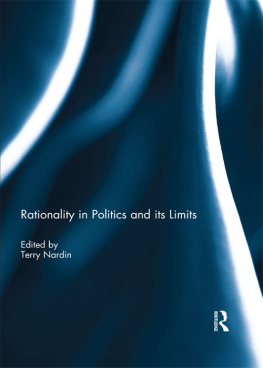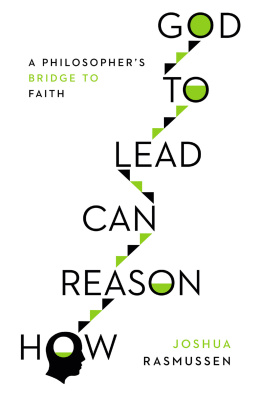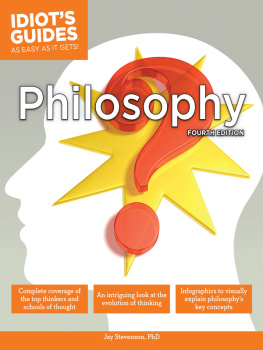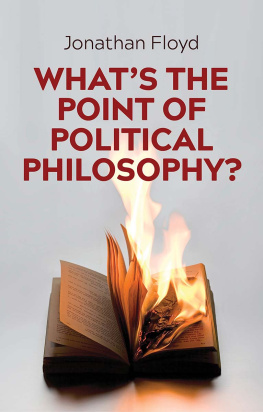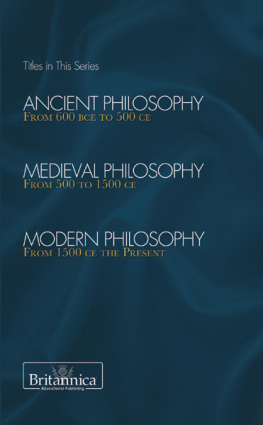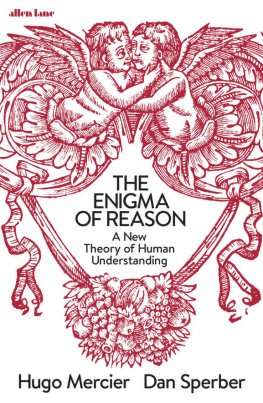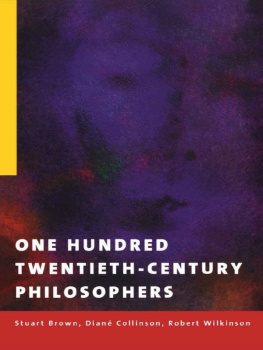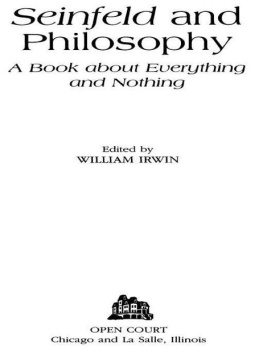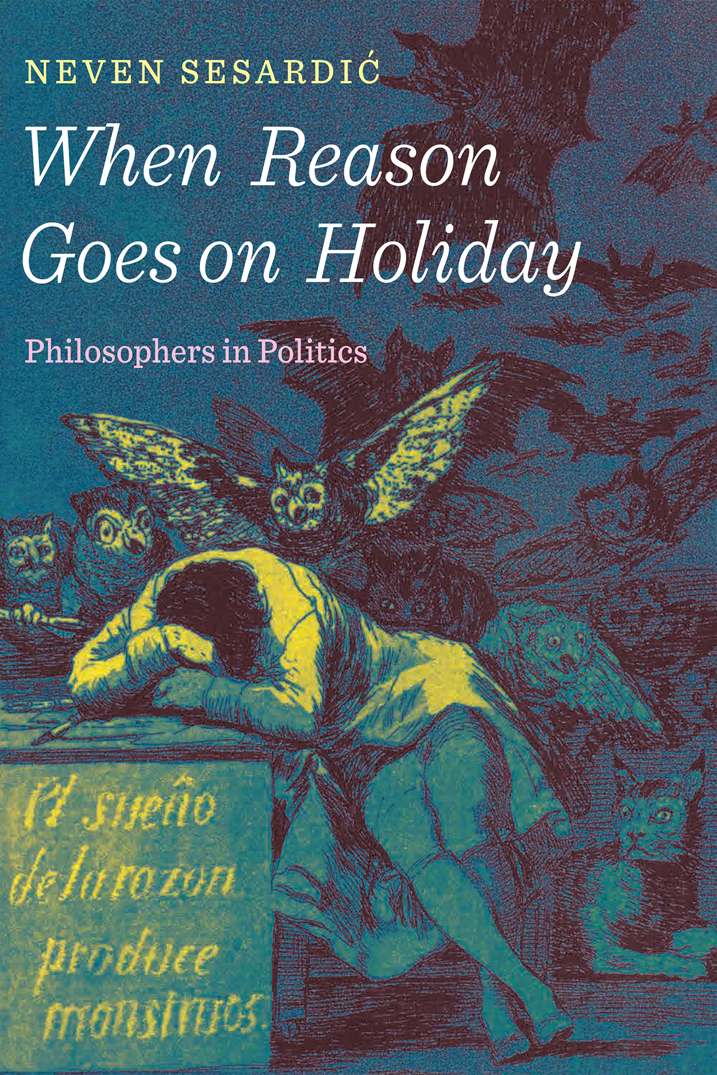

2016 by Neven Sesardi
All rights reserved. No part of this publication may be reproduced, stored in a retrieval system, or transmitted, in any form or by any means, electronic, mechanical, photocopying, recording, or otherwise, without the prior written permission of Encounter Books, 900 Broadway, Suite 601, New York, New York, 10003.
First American edition published in 2016 by Encounter Books, an activity of Encounter for Culture and Education, Inc., a nonprofit, tax exempt corporation.
Encounter Books website address: www.encounterbooks.com
The paper used in this publication meets the minimum requirements of ANSI/NISO Z39.481992 (R 1997) (Permanence of Paper).
FIRST AMERICAN EDITION
LIBRARY OF CONGRESS CATALOGING-IN-PUBLICATION DATA
Names: Sesardic, Neven, 1949 author.
Title: When reason goes on holiday: philosophers in politics / by Neven Sesardic.
Description: New York: Encounter Books [2016] | Includes bibliographical references and index.
Identifiers: LCCN 2016011693 (print) | LCCN 2016023313 (ebook) | ISBN 9781594038808 (Ebook)
Subjects: LCSH: Political sciencePhilosophyHistory20th century. | PhilosophyPolitical aspectsHistory20th century. | Political atrocitiesHistory20th century. | Right and left (Political science)History20th century.
Classification: LCC JA83 .S455 2016 (print) | LCC JA83 (ebook) | DDC 320.01dc23
LC record available at https://lcn.loc.gov/2016011693
Interior page design and composition: BooksByBruce.com
It is curious that the greatest intellectual gifts sometimes carry with them the inability to perceive simple realities that would be obvious to a moron.
E. T. JAYNES
Table of Contents
Guide
Contents
Credits
SOURCE: Gerd Arntz, Picture Statistics, Moscow 1934, c/o Pictoright Amsterdam 2016 (reprinted with permission).
SOURCE: Vsesojuznyj institut izobrazitelnoj statistiki sovetskogo stroitelstva i chozjajstva pri CIK SSSR: Na strojke socializma. Dostienija pervoj pjatiletki, Moscow: IZOSTAT, 1933.
SOURCE: Daily Worker, January 28, 1952.
SOURCE: Daily Worker, January 14, 1953.
SOURCE: Dawson, J., et al. (eds.), Kurt Gdel: das Album. Wiesbaden: Vieweg, 2006, p. 48 (reprinted with permission of Springer).
SOURCE: Dawson, J., et al. (eds.), Kurt Gdel: das Album. Wiesbaden: Vieweg, 2006, p. 66 (reprinted with permission of Springer).
SOURCE: http://web.archive.org/web/20130511032620/ http://www2.lse.ac.uk/philosophy/LakatosAward/lakatos.aspx.
SOURCE: Yad Vashem (reprinted with permission).
SOURCE: akg-images / Zhou Thong (reprinted with permission of AKG-Images).
SOURCE: Bundesarchiv, Image 183-L0911-029 / Photo: Peter Koard (reprinted with permission).
Many colleagues and friends read earlier drafts and helped with useful comments. I owe special thanks to my former graduate student Nathan Cofnas who went through several versions of the manuscript and suggested many significant improvements. I also received valuable feedback from Tomislav Bracanovi, Rafael De Clercq, Zvjezdana Duki, Berislav Horvati, Andrew Irvine, Tomislav Janovi, Paisley Livingston, David Papineau, Sean Scully, Ante Sesardi, Peter Singer, David Stamos, Matej Sunik, Omri Tal, and Daniel Wikler.
When I was finishing the first version of the book manuscript and when I started thinking about a potential publisher, I decided that my first choice would be Encounter Books. So I was thrilled when Roger Kimball offered me a book contract. I would also like to thank the production manager Katherine Wong for helping with many details and Dave Baker of Super Copy Editors.
Analytic philosophers emphasize the importance of logic, clarity, and reason. This is what made studying philosophy especially attractive for many of us who lived under communism. When we saw how much these philosophers valued intellectual integrity and uncompromising pursuit of truth, we found their approach inspiring and we tried to emulate it. This helped us preserve our sanity in the world of constant lies that surrounded us.
It was therefore a huge disappointment when I started to discover that a number of the most prominent Western philosophers who were rightly admired for their scholarly contributions actually abandoned reason altogether when they turned to politics. I realized that some of the thinkers I once regarded as models of rationality rushed into supporting ill-conceived and inhumane political causes. Some were even apologists for the mendacious communist regime that so obviously trampled on human liberty and that was abhorred by those of us who experienced it firsthand.
My disappointment led to curiosity about the extent of this betrayal of reason by philosophers and its many manifestations. I tried to learn more about this strange phenomenon that has received surprisingly little attention. The results of that research are presented here.

Many would be wise if they did not think themselves wise.
BALTASAR GRACIN
Should philosophers be kings, as Plato suggested? Or, to paraphrase William F. Buckley, wouldnt it be better to be ruled by the first 2,000 people listed in the telephone directory than by the most illustrious of Socrates intellectual descendants?
The evidence presented in this book shows that, despite their declared love of wisdom, surprisingly many leading philosophers have shown embarrassingly poor judgment in their excursions into politics. The disastrous way some of the most influential contemporary philosophers have engaged in politics should make us think twice before following their advice. This also raises a question: How could people who are obviously very clever and sophisticated in a field that is intellectually demanding be so foolhardy in practical affairs?
Indeed, twentieth-century philosophers have a bad track record in choosing sides in some momentous political debates. Many contemporary philosophers have disgraced themselves by defending totalitarian political systems and advocating political ideas they should have easily recognized as distasteful and inhumane. To give just three well-known examples, Jean-Paul Sartre championed Stalinism and later Maoism, Martin Heidegger actively supported and celebrated Nazism, and Michel Foucault publicly expressed enthusiasm for Khomeinis Iranian Islamic revolution.
How could the very people committed to gaining the deepest knowledge about the world and human existence get things so wrong? Could this have something to do with the fact that the three philosophers just named (plus many others with similar unfortunate involvements in politics) belong to the so-called continental tradition in philosophy?
The terms continental and analytic describe two different schools in philosophy that have been in conflict roughly since the beginning of the twentieth century. The distinction between them is notoriously hard to draw in clear and explicit terms, but philosophers usually have no problem assigning most of their colleagues into one of these two traditions. A provisional self-characterization of the analytic style of doing philosophy is the claim that the analytic approach involves argument, distinctions, and... moderately plain speech (Williams 2006, viii). In one of the best historical accounts of the rise and development of analytic philosophy, this approach is described as being committed to the ideals of clarity, rigor, and argumentation and to the goal of pushing rational means of investigation as far as possible (Soames 2003, xiiiiv). Basically, then, the trademarks of analytic philosophy would be clarity of thought, precision, and logical coherence, as well as the honest and persistent effort to avoid obscurantism, pretentious writing style and false profundity.


